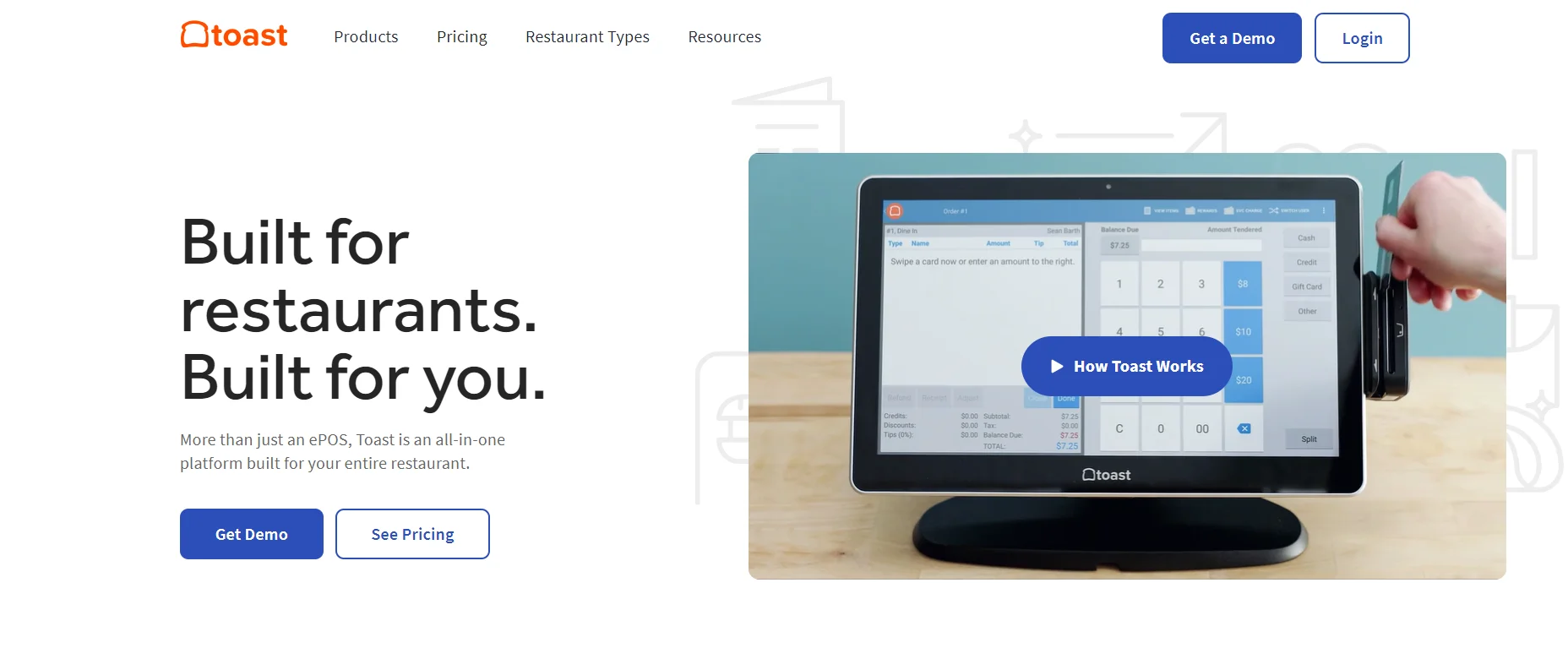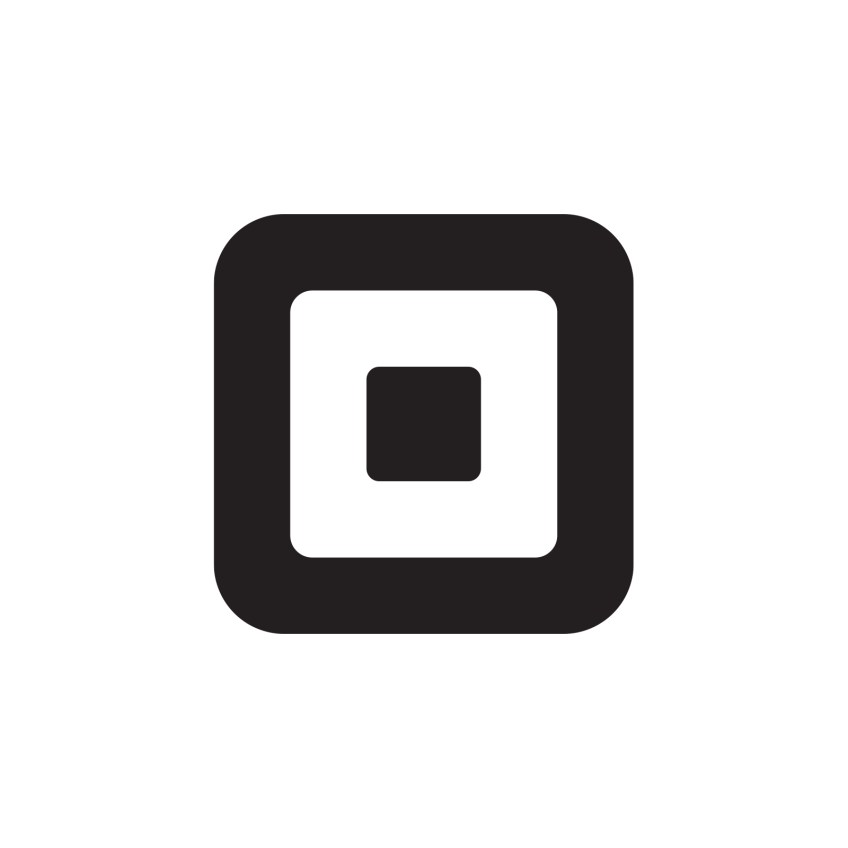
Selecting the right POS system can often feel like a daunting task. With the rise in cloud technology, businesses increasingly turn to Cloud POS systems due to their numerous advantages, from affordability to improved security.
This article aims to simplify this choice by providing an in-depth review of top-performing Cloud-Based POS Systems available in 2025. Ready? Let’s take your business operations up a notch!
Top 5 Cloud-Based POS Systems for 2025
Picking the best Cloud POS System is essential for your business’s success. Let’s dive into the top-rated systems for 2025:
Lightspeed POS: Best For Retail
Lightspeed Retail POS is a leading cloud-based solution with an edge in managing complex inventories across multiple locations. This all-in-one system caters to retail, restaurant, and golf businesses, offering innovative features like integrated product catalogues and order tracking.
Pros
- Easy Setup
- Cost-Effective
- Real-Time Information
- NFC Support
- PCI DSS Compliance
- Gift Card Support
Cons
- Complexity for Beginners
- Slow Customer Support
Features of Lightspeed POS
Diving into the realm of Lightspeed POS, this cloud-based system offers many valuable features tailored to streamline business operations and enhance customer service. Here’s what you can expect:
- Multiple payment options
- Return processing
- Surge pricing capabilities
- NFC transaction compatibility
- Customer experience priority
- PCI DSS compliance
- Reliable product support and backup solutions
Toast POS: Best for Restaurants

Toast POS is a top restaurant POS choice, offering menu management, table mapping, and integrated product catalogues.
Pros
- Menu Management
- Table Mapping
- Built-in Integrations
- High User Satisfaction
- Advanced Features
Cons
- High Hardware Costs
- Card-Present Transaction Fees
Features of Toast POS
Toast POS offers a range of features that make it the top choice for restaurants. These features include:
- Menu management allows you to create and update your menu items quickly.
- Table mapping, making it simple to assign tables to orders and track seating arrangements.
- Built-in integrations for kitchen display systems and self-order kiosks, improving efficiency and reducing errors.
- Compatibility with Android devices, giving you flexibility in choosing your hardware.
- Customisable pricing options allow you to tailor your plan and features to fit your business needs.
- Hardware costs range from $0 to $999, with the possibility of receiving hardware for free in exchange for accepting a higher payment processing rate.
Shopify POS: Best for E-Commerce
Shopify POS system is the ultimate solution for e-commerce businesses, offering a range of features such as inventory management, online sales capabilities, and marketing automation tools.

Features of Shopify POS
Shopify POS offers a variety of features that make it one of the best cloud-based POS systems for e-commerce businesses. These features include:
- Inventory Management
- CRM (Customer Relationship Management)
- Loyalty Programs
- E-commerce Integration
- Mobile Payments
- Reporting and Analytics
- Marketing Automation
Pros
- Easy Setup
- Multi-Platform Sales
- Reliable Customer Support
Cons
- Additional Hardware Costs
- PCI DSS Compliance
Square POS: Best for Omnichannel
Square POS stands out as the top choice for omnichannel businesses. With Square POS, enterprises can sell online, on social media platforms, over the phone, in person, and even in the field.
Features of Square POS
- Omnichannel Sales
- Mobile Payment Capabilities
- Inventory Management
- Software Integrations
- Enhanced Security
- Cost-Effectiveness
Pros
- Flexibility and Accessibility
- Solid Security Measures
- Mobile Payment Capabilities
Cons
- Higher-Tier Plan Costs
- Additional Software Integrations
- Reliance on Internet Connection
Clover POS: Best for Choice of Merchant Services
Clover POS system is widely recognised as the best cloud-based POS system for retailers. It offers comprehensive features designed to streamline business operations and enhance customer experiences.
Features of Clover POS
- Inventory Management
- CRM and Loyalty Programs
- E-commerce Integration
- Age-Verification Tools
Pros
- Payment Processor Flexibility
- Robust Loyalty Program
- Customer-Facing Loyalty App
Cons
- Lack of Regulatory Consistency
- Limited ACH Payment Processing
Cloud POS Systems Pricing Comparison
Lightspeed POS Pricing: starting at 119 USD
Square POS Pricing: starting at $29/month
Toast POS Pricing: starting at $69/month
Shopify POS Pricing (For retail businesses): starting at $89/month
Understanding Cloud POS Systems
A cloud POS system is a modern point-of-sale technology that operates on internet-based servers rather than local hardware.
Definition of a Cloud POS System
A Cloud POS System, a Point-of-Sale system, leverages the internet and remote servers to manage and use POS software from any web-enabled device. This system offers flexibility and scalability, enabling businesses to grow at their own pace.
It can process real-time data access, providing up-to-the-minute sales reports for more informed business decisions. Security is enhanced with cloud-based systems due to data encryption protocols in place that protect sensitive information from cyber threats.
From a cost perspective, these systems often require less upfront investment than traditional counterparts since they are typically provided on a subscription basis.
Differences between Cloud and Traditional POS Systems
Cloud POS:
- Can be accessed from any device with an internet connection, allowing for remote management.
- Often offered with subscription models, providing consistent updates and support.
- Designed to be flexible, accommodating growth and changes in business needs.
- Provides real-time data updates, offering instant insights into transactions and inventory.
- Most cloud POS systems use encrypted transactions, enhancing data security.
- Offers more pricing variability, including free plans and monthly fees ranging from $20 to $220.
Traditional POS
- Mainly operates on-site, limiting access to the immediate business environment.
- Typically requires upfront hardware expenditures, resulting in an additional initial cost.
- Typically less adaptable to changing business requirements.
- Real-time data updates may be limited or require additional setup with traditional systems.
- Security measures may vary with traditional systems and may require additional safeguards.
Benefits of a Cloud POS System
Adopting a Cloud POS system offers businesses numerous advantages:
- Flexibility: These systems provide the luxury of managing and utilising POS software from any device with an internet connection.
- Scalability: Cloud POS systems can grow with your business, easily accommodating new products, services, or locations.
- Real-time Access to Data: Business owners can access data in real time, allowing for quick decisions based on up-to-date information.
- Enhanced Security: With features like data encryption, cloud POS systems provide high-level security to protect your business and customer details.
- Cost-Effectiveness: These systems generally come with low price points and easy setup, which keeps operational costs down.
- Offline Payment Processing: Some cloud-based systems can still process payments without an internet connection.
- Comprehensive Analysis & Reports: Business owners can gain valuable insights into sales dynamics and customer behaviour with customisable reports and advanced analytics features.
- Efficient Inventory Management: Automatically syncing inventory tools helps keep track of stock levels in real time.
- Streamlined Operations Management: From managing purchase orders to tracking shipped purchases, these systems handle back-end operations effectively.
- Customer Loyalty Enhancement: Built-in loyalty programs make it simple to boost customer retention rates by rewarding repeat customers.
Key Features to Look for in a Cloud POS System
Discovering the right Cloud POS System for your business requires understanding its key features. Here are some essential elements to consider:
- Device Compatibility: The system should work seamlessly across multiple devices. As noted in our essential facts, this flexibility allows your business to function on any internet-connected device.
- Easy Setup: Your chosen system should offer an easy, user-friendly setup process. This feature can save both time and frustration, making it highly valuable.
- Inventory Management: An effective Cloud POS system will provide robust inventory management tools. These assist in tracking product levels, order statuses and sales trends.
- Payment Processing: Remember that accepting card payments might need a processing service. Choose a system with simple, efficient payment processing included to avoid extra fees and complications.
- Reporting Capabilities: Look for systems offering detailed reporting and analytics features. They should provide real-time data about sales, customer behaviour and other critical metrics.
- Scalability: As your business grows, so do its demands. Ensure your selected system can adapt and scale alongside your operations.
- 24/7 Customer Support: Immediate assistance can prove vital when unexpected issues arise. Select a system that provides round-the-clock support services for peace of mind.
- Security Features: Protecting customer information is crucial to maintaining trust and loyalty. Your Cloud POS system needs robust security measures, such as data encryption, to keep transactions safe.
FAQs on Cloud-Based POS Systems
How does a cloud POS differ from a traditional POS?
Cloud-based POS systems differ from traditional POS systems in several key ways. Firstly, a cloud POS system operates entirely online, allowing businesses to access their data and manage transactions from any internet-connected device.
In contrast, traditional POS systems rely on local servers or hardware that store information locally. Secondly, cloud POS systems offer greater flexibility and scalability as businesses can easily add or remove terminals as needed without the hassle of physical installations.
What are the advantages of a cloud POS system?
Cloud-based point-of-sale (POS) systems offer several advantages for businesses. Firstly, they provide the flexibility and convenience of managing and accessing your POS software from any internet-connected device.
Secondly, cloud POS software automates payment processing and inventory management tasks, improving efficiency and reducing errors.
Lastly, cloud POS systems are cost-effective compared to traditional on-premise systems.
What are the disadvantages of a cloud POS?
Cloud POS systems come with a few disadvantages that businesses should consider before deciding. Firstly, they heavily rely on internet connectivity, which means that a network outage or slow internet speeds can disrupt business operations.
Additionally, some cloud POS systems have limited offline capabilities compared to traditional on-premise systems, as certain functions may not be accessible without an internet connection.
What do I need for a cloud POS system?
You’ll need a few key components to set up a cloud POS system. First and foremost, you’ll need an internet connection since the system relies on online access to function correctly.
You’ll also need compatible hardware, such as tablets or smartphones, to serve as your point-of-sale devices. Additionally, consider investing in barcode scanners, receipt printers, and cash drawers for a complete setup.
Conclusion
In conclusion, consider cost, features, ease of use, and customer service when selecting the best cloud-based POS system for your business. Look for a system that offers inventory management, mobile payment capabilities, software integrations, and industry-specific features.









